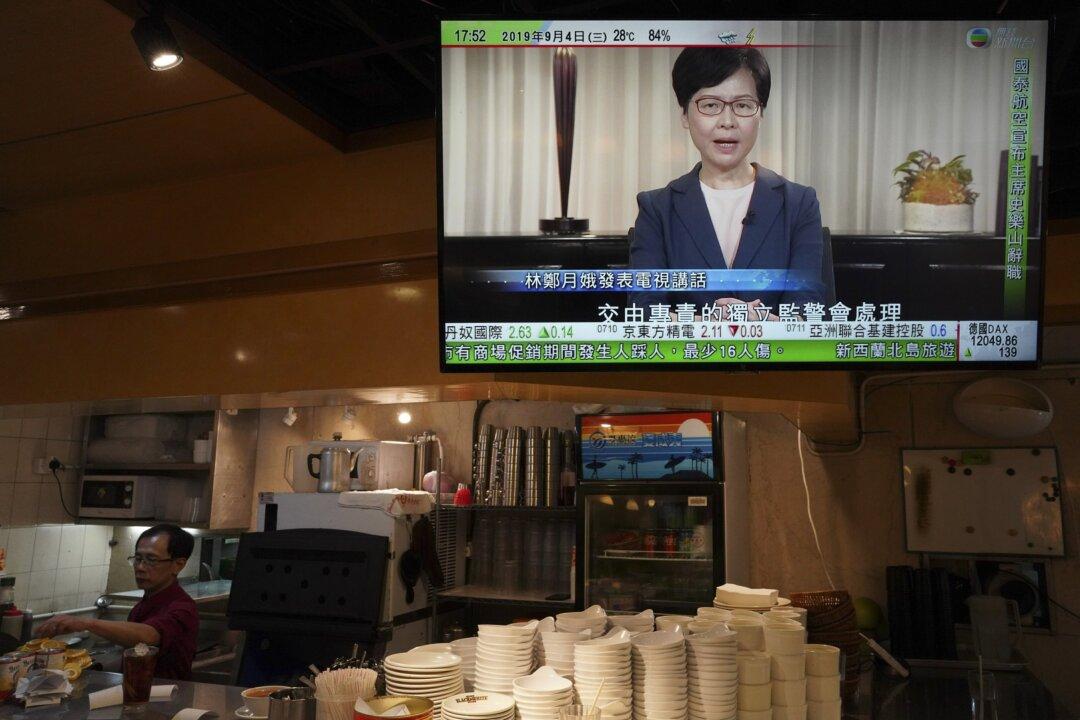Hong Kong leader Carrie Lam has announced the withdrawal of an extradition bill that has triggered the largest protests in the city’s history.
Lam’s announcement was made in a pre-recorded television address just before 6 p.m. local time on Sept. 4.


Hong Kong leader Carrie Lam has announced the withdrawal of an extradition bill that has triggered the largest protests in the city’s history.